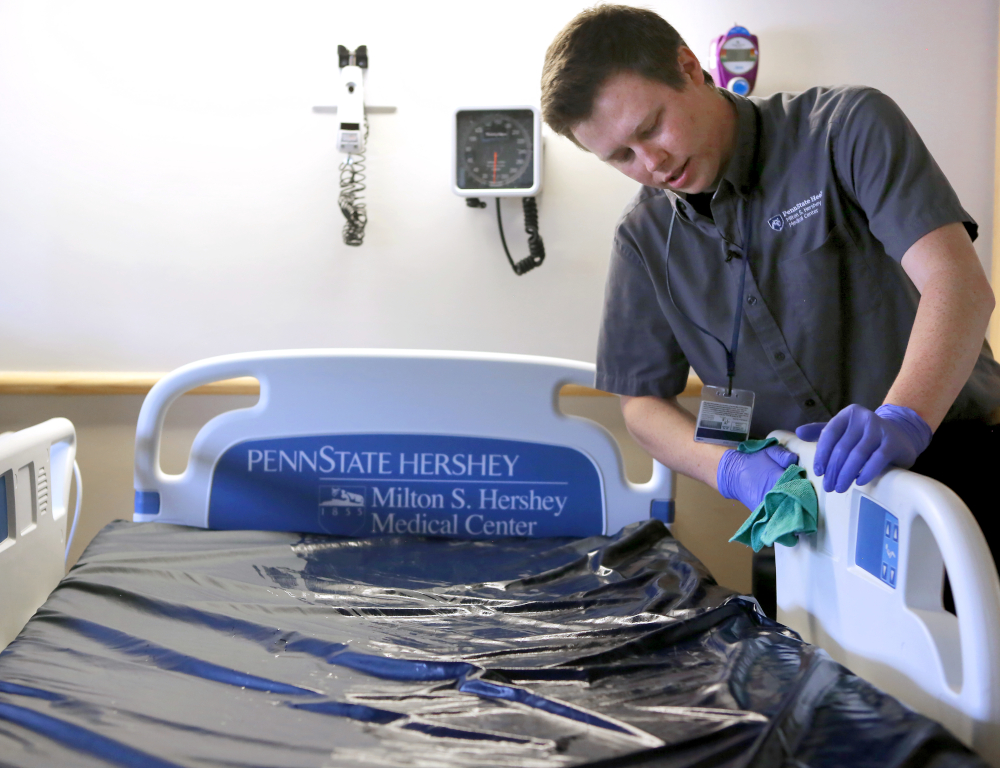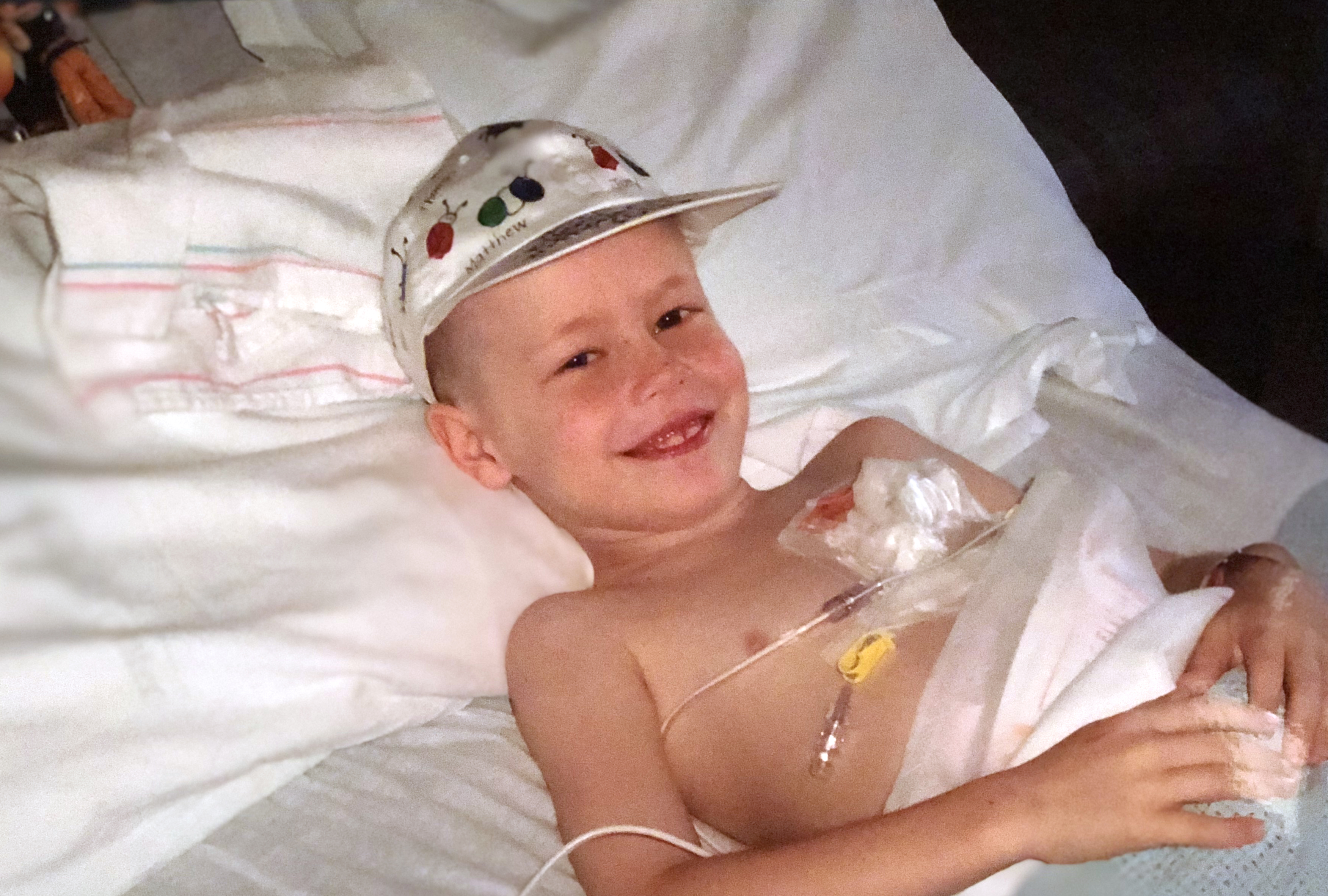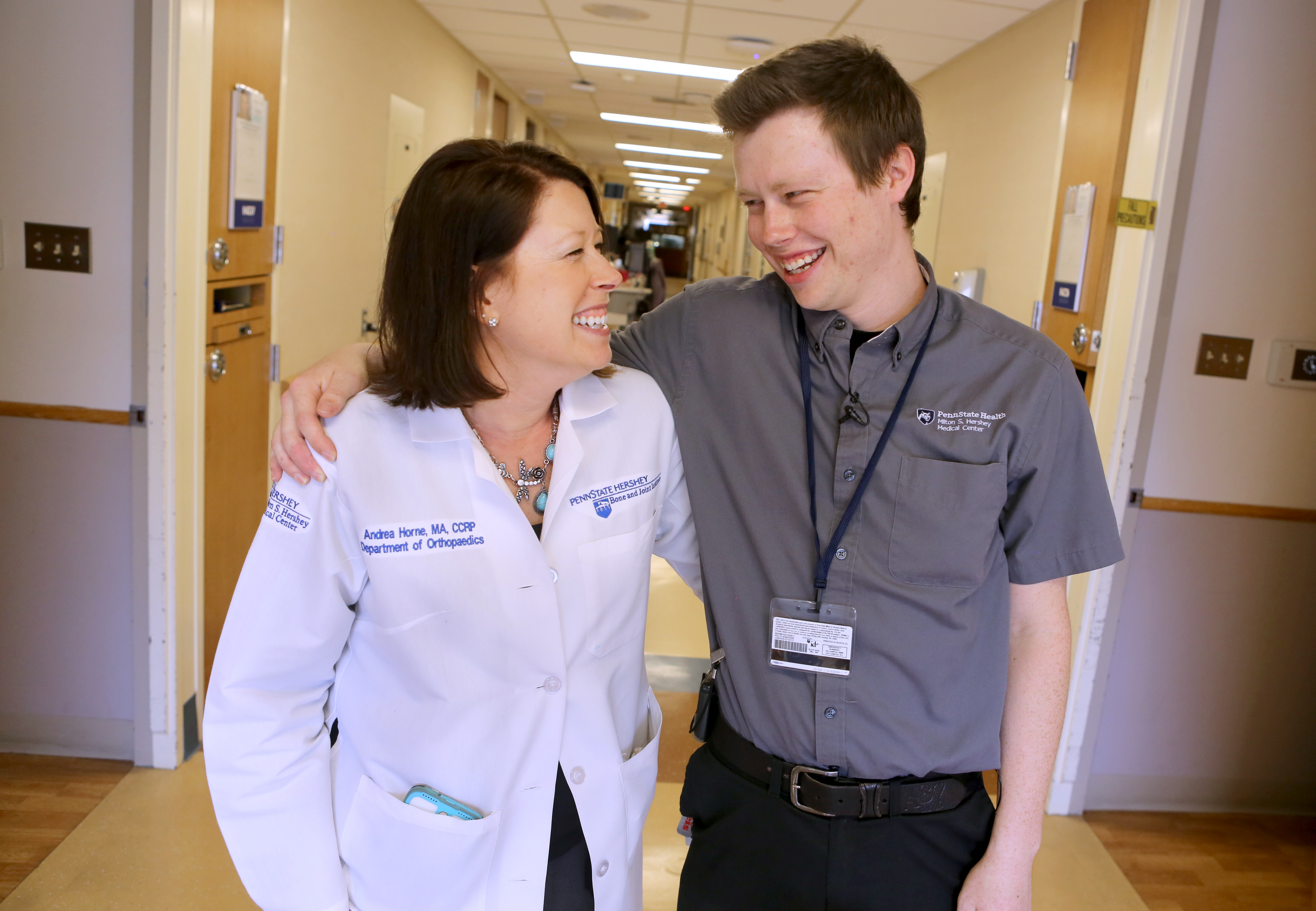In their shoes: pediatric cancer survivors grown up and working “For the Kids”

By Carolyn Kimmel
Cole Horne knows that being diagnosed with Burkett’s Lymphoma at age 6 was a life-changing moment, but his memories are not of the large tumor that had to be removed or the five months of chemotherapy that followed; he remembers the fun.
Yes, the fun.
“When you are in Penn State Health Children’s Hospital, you don’t even feel like you’re in the hospital. There’s music therapy, pet therapy, bingo,” said Horne, now 20 and cancer-free for 13 years. “Then I began participating in THON when I was 7 until I was 13, and that took my mind off what was going on. Everyone is so happy, and they’re there celebrating you.”
Today this childhood cancer survivor is back at Penn State Health, this time as an employee, drawn back because of the excellent support he and his family received from the staff and Four Diamonds.
- Watch a video about Cole.
“I always thought this is where I wanted to work because of everything they’ve done for me,” said Horne, who works in Environmental Health Services. “Even though I’m not directly involved in patient care, helping control the spread of germs and disease and giving patients a good atmosphere to be in is important.”

Cole, age six, smiles from his Penn State Health Children’s Hospital bed while being treated for Burkett’s Lymphoma.
Similarly, Aubrey Mora, who was diagnosed with fibrosarcoma at 20 months and had her leg amputated, said she recalls feeling like a “celebrity” while being treated at the Children’s Hospital. “A lot of us kids didn’t even know we were sick. We got so much attention and had so many adults doting on us,” said Mora, who subsequently relapsed and underwent treatment for two years.
When Mora’s parents told her that her best friend from preschool, Carrie Ashby, also had cancer, Mora was excited that Ashby would be going to the same hospital and to THON.
The two little girls—and their families—made their cancer journeys together but, like Horne, they mostly remember Four Diamonds fun and the special attention from the staff.
“It was a large blessing to know Aubrey’s family and to be immersed in this culture of caring and support. If we hadn’t had that network, I don’t think we would have had the positive outlook we had,” said Ashby, who went into remission after two years of chemotherapy treatment for acute lymphocytic leukemia.
In graduate school, Mora did an internship with Greg Baiocchi, who had been her social worker at the Children’s Hospital when she was a child. He became a mentor and is now her colleague.
“The experience I had to undergo as a young child shaped my personality and drive to give back,” said Mora, who was given just a 3 percent chance of surviving as a child. “Being on the other side as a survivor is very rewarding and humbling. My story is one of hope for sure.”
For Richard Ludwig, working as a Penn State Cancer Institute scheduling coordinator has brought his life “full circle,” he said. He was diagnosed with bone cancer in his left wrist in 2001 when he was 15. After a left forearm amputation sandwiched between two rounds of chemotherapy, he left the Children’s Hospital having beaten the odds.
“I’m proud to work for the organization that cured me,” he said. “My life could have gone a whole other direction without the help and care I got here.”
A large part of that help came from Four Diamonds, which provides financial support to families and connects them to community resources.
“I would have lived in a cardboard box if I had to, but having support from Four Diamonds helped me to relax and focus on Cole getting better,” said Andrea Horne, Cole’s mother, who works at Penn State Health as a clinical research associate in the Department of Orthopedics. “The financial support was amazing—I never saw a bill. They put us in touch with other resources. One even covered our mortgage for a month.”
The annual THON and Mini-THON are Four Diamond’s largest fundraisers, and corporations and individuals also donate through community events. Thanks to substantial giving, Four Diamonds was able to establish the Four Diamonds Pediatric Cancer Research Center and currently supports 84 research team members.
“The work we are doing makes a meaningful difference,” said Four Diamonds Executive Director Suzanne Graney. “In addition to helping families, we’ve made advances in research that the community has funded through Four Diamonds.”
For frazzled families whose lives are turned upside down when cancer strikes, Four Diamonds is a lifeline—one that Ashby is proud to represent.
“I always dreamed of working here,” said Ashby, who became a certified child life specialist to offer the same encouragement she cherished. “Years down the line, I hope families will remember that even in that dark time, they had the light of the staff.”

Andrea and Cole Horne walk arm-in-arm at Hershey Medical Center.
If you're having trouble accessing this content, or would like it in another format, please email Penn State Health Marketing & Communications.
